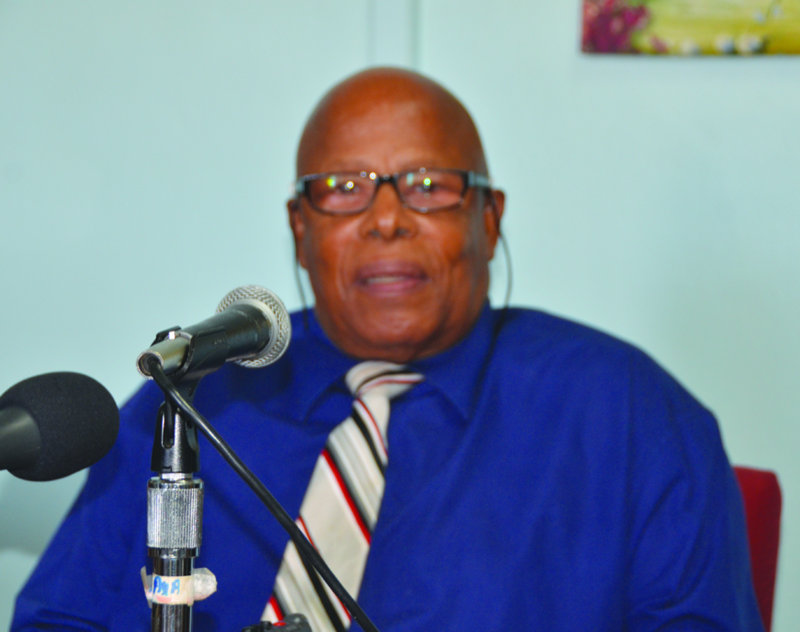

An Act, rushed through the Anguilla House of Assembly on Monday, December 30, has substantially increased the ability of the Police to solve crime on the island other than by fingerprinting and other means of detection now being used.
In large measure the Act, which came at short notice, is in response to the increasing incidence of gun-related crimes in Anguilla. It was taken to the House of Assembly just nine days following the shooting death of Renario Richardson (of Blowing Point) at Sandy Hill. He was the latest victim of gun violence in various other areas on the island over recent years.
The enabling legislation is the Anguilla Police (Amendment) Act, 2013 which, as a Bill, was given its three readings after the suspension of the appropriate rules of the House of Assembly.
The Attorney General, James Wood, piloted the Bill through the Assembly. “By way of explanation behind this Bill, very recent events highlighted the difficulty that the police force faces in connection with taking certain samples,” he explained. “It relates to what is described in the Bill as being non-intimate samples. In clause 4, those sorts of samples are described – and they are defined as being a sample of hair other than pubic hair; a sample taken from a nail or under a nail; a swab taken from any part of a person’s body other than a body orifice; and, lastly, a footprint or similar impression from any part of a person’s body other than a part of his hand.
“The last clause is drafted in that way because the police currently have powers to take fingerprints. They also have powers to take measurements and photographs in certain circumstances. This Bill goes towards extending the powers to take other non-intimate samples. However, they can only take those samples in certain circumstances and those are described at clause 1.”
The Attorney General continued: “Firstly, it would be lawful for a gazetted police officer, or for any officer above or below the rank of Inspector, who is authorised by the Commissioner of Police, to take and record for the purposes of evidence, such non-intimate sample from any person. Where he suspects that person, from the nature and character of the offence for which he is charged, or has been previously convicted, or has been engaged in crime, and such non-intimate sample is required in the interest of justice.”
Mr Wood explained that the above procedure would be undertaken on the basis that the consent [of a suspected person] is provided for the taking of those samples. “The Bill provides for checks and balances in the process by sub-clause 2,” he went on. “If any person …refuses to submit to the taking of a non-intimate sample, he may be taken before the magistrate – and if the magistrate is satisfied that the suspicion of the gazetted police officer is reasonably grounded, on any of the considerations which I have just read out in sub-clause 1, he may make such order with respect to the taking of a non-intimate sample of such person as he thinks fit.”
The Attorney General said that the taking of such a sample had proven to be extremely important as the police were making increasing use of what was called GSR (gunshot residue) swabs. “This is a very important forensic evidence tool that the police have in being able to determine whether a person has come in close proximity with the discharge of a firearm,” he stated. “Time is obviously of the essence with cases like this. If the police have power to be able to take these swabs, shortly after a person has been taken into custody is possible, that can provide extremely useful evidence ensuring the culpability or otherwise of a particular suspect.”
Mr Wood further explained that sub-clause 3 provided the last check and balance. That is where a non-intimate sample is taken from a person who is not previously convicted of any criminal offence and such person is discharged or acquitted by a court – the non-intimate sample and all records relating to that sample shall be forthwith destroyed. “[This has to be done] in the presence of a gazetted police officer or handed over to such person.”
The amending legislation received the full support of all members of the Government and Opposition sides of the House of Assembly. Overall, the members were of the opinion that the legislation was long overdue and there was a need to equip the police with the necessary increased powers to bring the perpetrators of gun violence to justice.
Meanwhile, the House of Assembly also dealt with a number of other matters. The Order of Business included the debate of a number of duty-free motionswhich were passed; and the first readings of the Financial Services (Miscellaneous Amendments) Bill, 2013, the Confidentiality Relationships (Amendment) Bill, 2013 and the Public Utilities Commission (Amendment) Bill, 2013.








